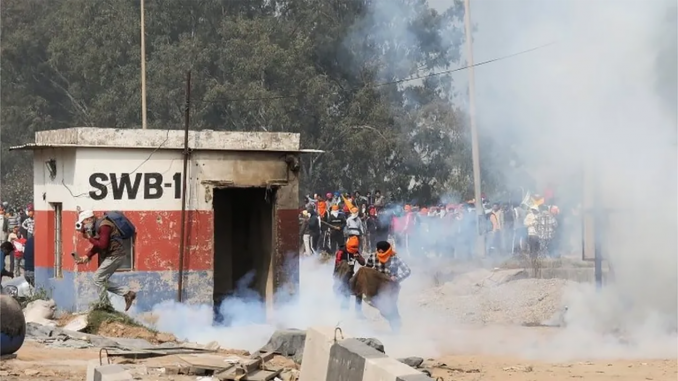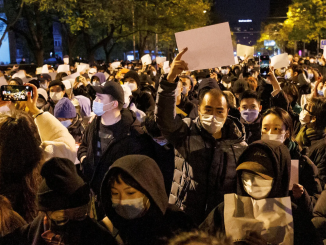
Farmers in India have marched to the capital, New Delhi, to urge the government to meet their demands.
This is the second time farmers in India have mobilized themselves to this level in the past three years. In 2020 and 2021, tens of thousands of farmers protested three agricultural reform laws that would have weakened protections for them against big agricultural business. The farmers ultimately won and forced Prime Minister Narendra Modi to repeal all three reforms and promise the doubling of their incomes.
However, Modi has not kept his promise and economic conditions for farmers have worsened since then. Extreme weather and dwindling water sources brought on by climate change have reduced agricultural output. Crop failures resulting in debt have continued to push many farmers to take their own lives. The government has not addressed any of these crises, which is why the farmers are back on the streets making demands, including: 1) minimum support prices (MSP) that would allow them to sell most of their produce at government controlled wholesale markets; 2) fulfillment of the Modi government’s promise of doubling the farmers’ income; and 3) compensation for the families of farmers who died during the 2020-2021 protests.
As Mahinder Singh, a 100-year old Punjabi farmer who joined the march, explained:
My family stops me from protesting, but our expenses are not covered. I have two children, daughters. I have a family. What choice do I have? Our lands are gone. Our rights are gone. They, the government, do not give the rights even when we demand them.
The farmers are left with no choice but to march and make their demands. And their history of resistance shows that they can mobilize themselves and successfully place pressure on the government. But, as Singh points out, history also shows us that the government doesn’t follow through with their promises and ignores the rights of working people.
If people don’t protest, the big agricultural corporations, supported by the government, will have their way. Corporate profiteers will continue to exploit the land and the people as long as the current system stands. To win anything, the farmers of India must continue to organize and build their forces to challenge the Modi government and the wealthy few it represents.




